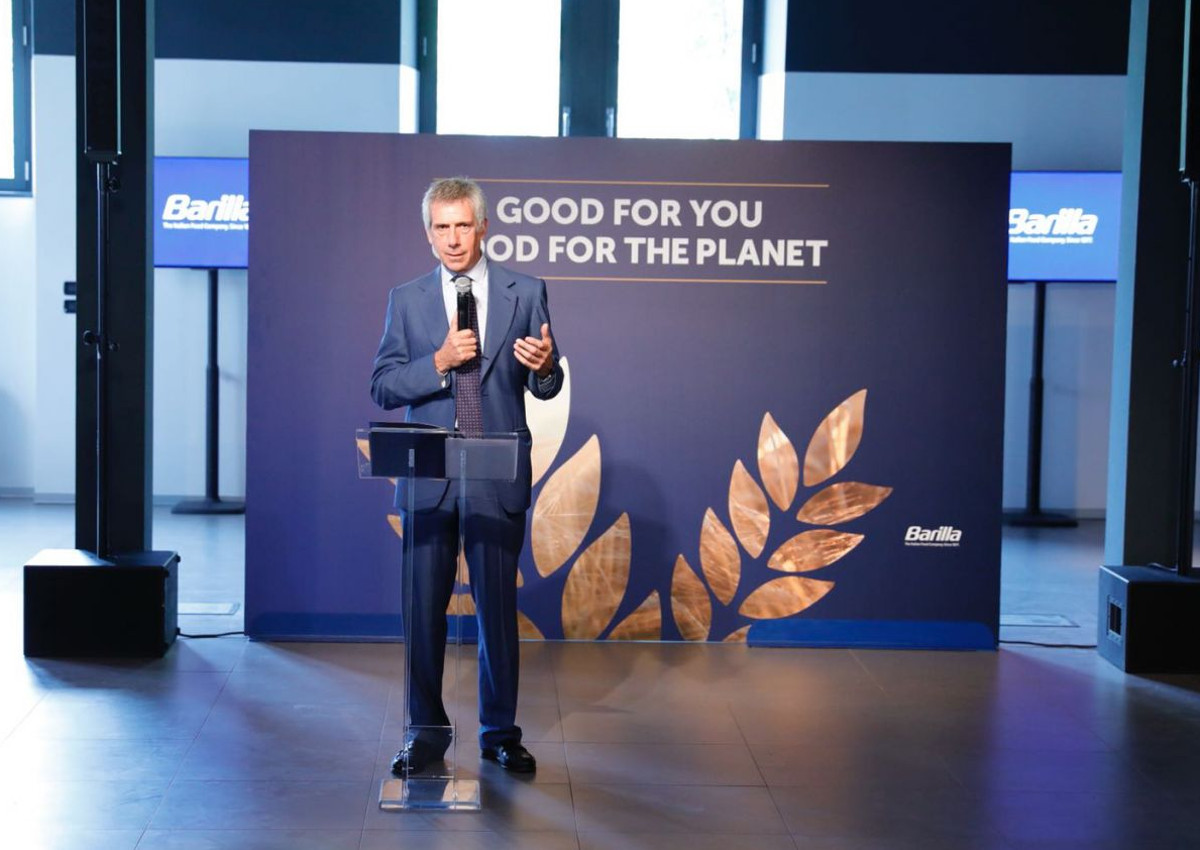
More than one million tons of durum wheat – equal to 90% of the total – directly purchased in the places where pasta is produced; share of sustainable durum wheat purchased in Italy grew by 26%; increasing use of more sustainable transport, from natural gas vehicles to the wheat train, which has so far taken off the roads about 5000 trucks; 26 products reformulated last year; concrete attention to animal welfare, which also in 2017 confirmed Barilla as the leading Italian company in the global benchmark (BBFAW). These are just some of the results illustrated in the Barilla Sustainability Report ‘Good for you, Good for the Planet’, presented in Milan during the World Environment Day.
INVESTMENTS
The presentation of the Report was an opportunity to announce investments of one billion euros over the next five years, to be used for further improvement of Barilla’s industrial structure. Approximately 60% of the investment will be aimed at increasing competitiveness and sustainability through improved processes and technologies, while the remaining 40% will be targeted at supporting geographical growth and innovation. We must face the challenges of the coming years in terms of innovation, quality, sustainability, with great commitment and dedication, fully involved in the goal of development, involving all actors in the chain said Vice-President Paolo Barilla.
INNOVATION
Part of the investment will be concentrated, in particular, in the expansion of the Rubbiano (Parma) plant, which is destined to become the largest pasta factory in Europe. A modern 4.0 plant characterized by cutting edge technology and energy saving practices. Generally speaking, if Barilla is working in Italy to maintain and replace assets, abroad it will focus on increasing production capacity to support business expansion.
FIGURES
Barilla ended 2017 with a turnover of 3,468 million euros (+3% on 2016, net of the exchange rate effect): a development to which the excellent performance of the sauces segment contributed significantly. Bakery products in Italy and France and pasta performed well, thanks in particular to the new ‘Better for You’ offers (10 new products launched in 2017).
SUSTAINABILITY
There are also challenges in terms of sustainability. By 2020, Barilla aims to double the number of farmers involved in the Sustainable Agriculture programme from 5,000 to 10,000, doubling the volumes of sustainable wheat from the Italian supply chain. Moreover, the multi national pasta company aims at purchasing 100% of the raw materials in line with the Barilla Code of Sustainable Agriculture, reducing carbon dioxide emissions by 30% compared to 2010, and – in terms of recycling – achieving the zero waste target.
